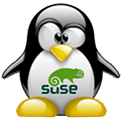Name
mcat - dump raw disk image
Note_SPACE_of_SPACE_warning
This manpage has been automatically generated from mtools’s texinfo documentation, and may not be entirely accurate or complete. See the end of this man page for details.
Description
The
mcatcommand is used to copy an entire disk image from or to the floppy device. It uses the following syntax:
mcat[
-w] drive
:
Mcatperforms the same task as the unix
catcommand. It is included into the mtools package, since
catcannot access remote floppy devices offered by the mtools floppy daemon. Now it is possible to create boot floppies remotely.
The default operation is reading. The output is written to stdout.
If the
-woption is specified, mcat reads a disk-image from stdin and writes it to the given device. Use this carefully! Because of the lowlevel nature of this command, it will happily destroy any data written before on the disk without warning!
See_SPACE_Also
Mtools’ texinfo doc
Viewing_SPACE_the_SPACE_texi_SPACE_doc
This manpage has been automatically generated from mtools’s texinfo documentation. However, this process is only approximative, and some items, such as crossreferences, footnotes and indices are lost in this translation process. Indeed, these items have no appropriate representation in the manpage format. Moreover, not all information has been translated into the manpage version. Thus I strongly advise you to use the original texinfo doc. See the end of this manpage for instructions how to view the texinfo doc.
| * | To generate a printable copy from the texinfo doc, run the following
commands:
./configure; make dvi; dvips mtools.dvi
|
| * | To generate a html copy, run:
./configure; make html A premade html can be found at oohttp://www.gnu.org/software/mtools/manual/mtools.htmlI |
| * | To generate an info copy (browsable using emacs’ info mode), run:
./configure; make info
|
